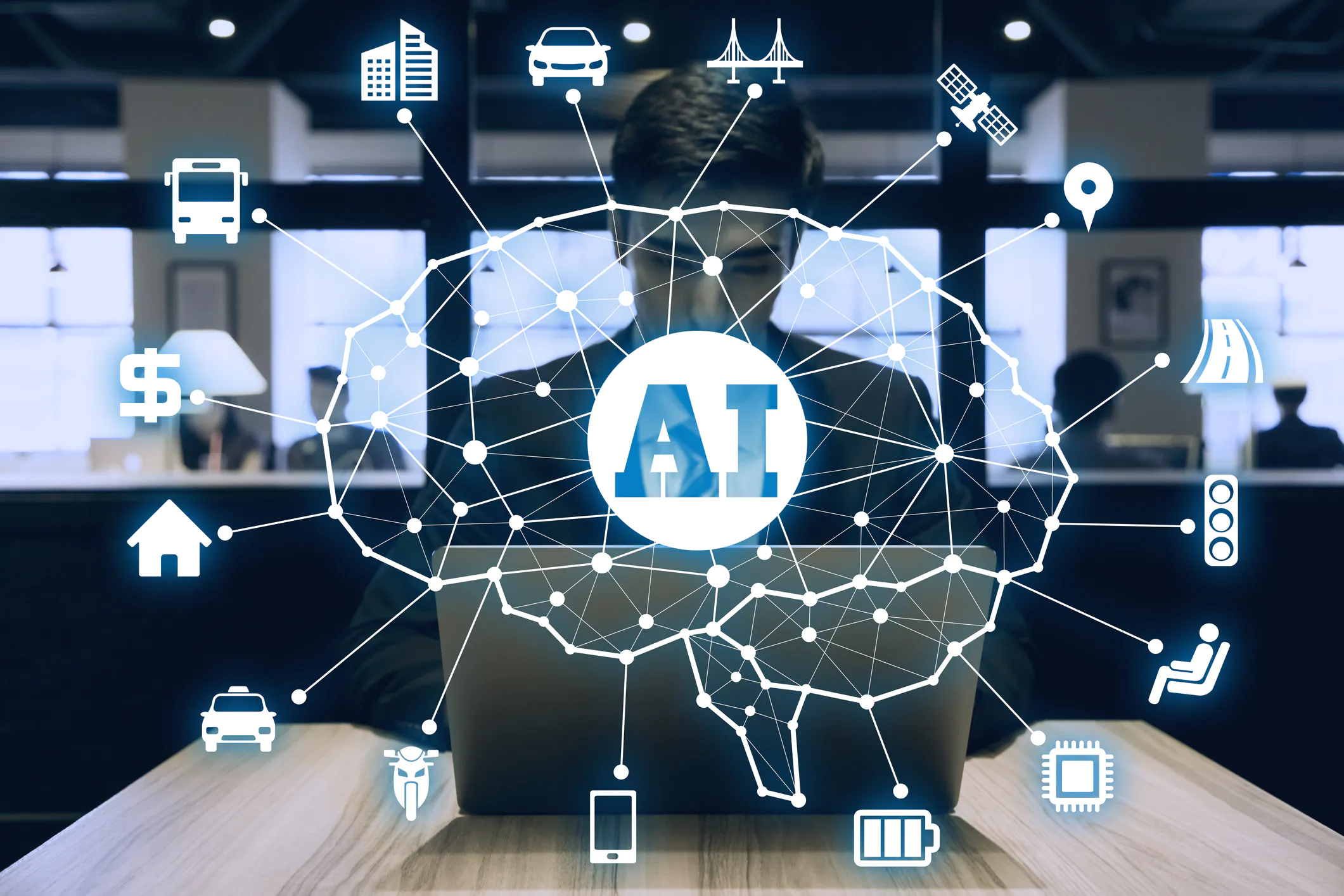In the age of artificial intelligence (AI), traditional methods of gathering research and generating insights are being transformed at an unprecedented pace. One of the most exciting innovations is the rise of AI-generated case studies. These case studies, powered by AI technologies, are revolutionizing the way industries gather data, analyze patterns, and derive actionable insights. But how exactly are AI-generated case studies shaping the future of research and insights?
Let’s dive into the fascinating intersection of AI and case study creation, and explore the profound impact it’s having on businesses, researchers, and decision-makers.
Book a demo to experience the meaningful insights we derive from data through our analytical tools and platform capabilities. Schedule a demo today!
Request a Free DemoTable of Contents
The Role of AI in Case Study Generation
AI in case study generation involves using advanced algorithms and machine learning techniques to automate the creation of case studies. AI-driven insights can uncover patterns and trends from massive datasets and synthesize them into comprehensive reports, reducing the time and effort spent on traditional case study creation.
How Does AI Work in Case Study Creation?
AI-powered tools use natural language processing for case studies (NLP) to analyze text data, understand context, and generate reports that mirror human writing. These tools scan a wide array of sources, such as industry reports, customer reviews, and social media discussions, to gather relevant information. AI case study analysis is then performed to identify key insights, trends, and actionable recommendations.
Key Steps in AI-Generated Case Study Creation:
| Step | Description |
|---|---|
| Data Collection | AI gathers structured and unstructured data from various sources such as reports, surveys, and customer feedback. |
| Data Processing | Machine learning algorithms clean and categorize the data for analysis. |
| Analysis | AI models analyze patterns and extract valuable insights from the data. |
| Content Generation | Natural language processing (NLP) is used to draft case study reports that outline the findings and recommendations. |
| Review and Optimization | AI tools optimize the report for clarity, readability, and relevance. |
Read more: 2025 AI Roadmap Webinar
Benefits of AI-Generated Case Studies
AI is transforming case study creation by providing several advantages that traditional research methods cannot match. Here’s how:
Speed and Efficiency
AI can generate AI-powered case studies in a fraction of the time it takes humans. This rapid automated case study creation means businesses can access insights faster and act on them in real-time.
Data-Driven Insights
AI’s ability to sift through massive datasets and analyze information from multiple sources ensures that the insights are based on real data rather than assumptions or biases.
Personalized Case Studies
AI can tailor case studies to specific business needs. Whether you need an AI research case study on customer behavior, a machine learning case study on operational improvements, or an AI content generation strategy, AI tools can adapt to create the most relevant case studies for your business.
Cost-Effective
By automating the case study process, AI reduces the need for large research teams, making the entire process more affordable while maintaining high-quality outputs.
Predictive Analytics
AI doesn't just report on historical trends; it predicts future outcomes based on past data. This makes AI-generated case studies invaluable for forecasting trends, customer behaviors, and market dynamics.
AI-Driven Case Study Examples in Various Industries
Here’s a look at how different industries are using AI-driven case studies to gain valuable insights:
| Industry | Application Example |
|---|---|
| Healthcare | AI analyzes patient data, treatment outcomes, and drug efficacy to generate AI case study examples that highlight best practices and areas for improvement. |
| Retail | AI tools analyze consumer purchasing patterns, feedback, and product sales to create market-specific AI research case studies. |
| Finance | AI-powered case studies help financial analysts understand market shifts, customer investment preferences, and risk assessments. |
| Education | AI case study analysis can be applied to student performance, curriculum effectiveness, and learning outcomes to improve educational strategies. |
Key AI Technologies in Case Study Generation
To better understand the power of AI in case study creation, let’s explore some of the core technologies that drive this transformation.
1. Natural Language Processing (NLP) for Case Studies
NLP enables AI systems to understand and generate human-like text, making it possible for AI-driven case studies to sound coherent and professional. It is the backbone of AI content generation, allowing AI to craft narratives and insights from data without human input.
2. Machine Learning Algorithms
Machine learning algorithms can process vast amounts of data to identify trends and correlations. These algorithms can be trained on historical case studies and research data, allowing them to generate new AI research case studies based on fresh datasets.
3. Predictive Analytics
AI’s predictive capabilities allow businesses to generate AI-powered case studies that do more than reflect on past events—they forecast future trends. By analyzing current data, AI tools predict upcoming changes in the market, customer preferences, and industry shifts.
Quantzig’s Services: Leveraging AI for Case Studies
At Quantzig, we specialize in using AI-driven case studies to deliver actionable insights for businesses across various industries. Our AI case study tools integrate machine learning and natural language processing to provide customized, data-driven reports that are fast, accurate, and reliable.
Quantzig’s AI-Powered Solutions Include:
- Market Research Case Studies: Using AI for market research case studies, we analyze consumer behavior, market trends, and competitor performance to deliver comprehensive reports.
- Predictive Analytics: Our AI-driven insights allow businesses to forecast future trends and optimize decision-making processes.
- Customer Segmentation: By analyzing vast datasets, we create data-driven case studies that offer deep insights into customer preferences and segmentation strategies.
- Business Performance Analysis: Through machine learning case studies, we help businesses evaluate their operational efficiency, identify bottlenecks, and recommend strategies for improvement.
Experience the advantages firsthand by testing a customized complimentary pilot designed to address your specific requirements. Pilot studies are non-committal in nature.
Request a Free PilotHow AI-Generated Case Studies Are Changing Business Practices
The ability to generate AI-driven case studies at scale is transforming how businesses make decisions. By automating case study creation, organizations can:
- Shorten decision cycles: Real-time insights allow businesses to make faster, data-driven decisions.
- Improve accuracy: With AI analyzing large datasets, insights are more accurate and less prone to human error.
- Enhance scalability: AI enables businesses to generate multiple case studies across different departments, products, or markets simultaneously, improving operational scalability.
The Future of AI in Case Study Creation
As AI technology continues to evolve, we can expect even more advanced AI-driven case studies with greater accuracy, deeper insights, and more predictive capabilities. The combination of natural language processing for case studies, machine learning, and AI research methodology will continue to refine how case studies are created, analyzed, and implemented.
Businesses that adopt AI-powered case studies now will not only stay ahead of their competition but also unlock new opportunities for growth and innovation. Case study automation will become a standard practice, making research faster, more efficient, and more impactful than ever before.
Conclusion
AI-generated case studies are revolutionizing the way businesses approach research and insights. By automating the case study creation process, companies can generate valuable insights faster, reduce costs, and make more informed decisions. Whether it’s AI-driven insights for market research, predictive analysis, or customer behavior, AI is shaping the future of case study creation. With Quantzig’s AI-powered solutions, businesses can harness the full potential of these technologies to gain a competitive edge and drive success in an increasingly data-driven world.
Get started with your complimentary trial today and delve into our platform without any obligations. Explore our wide range of customized, consumption driven analytical solutions services built across the analytical maturity levels.
Start your Free Trial



